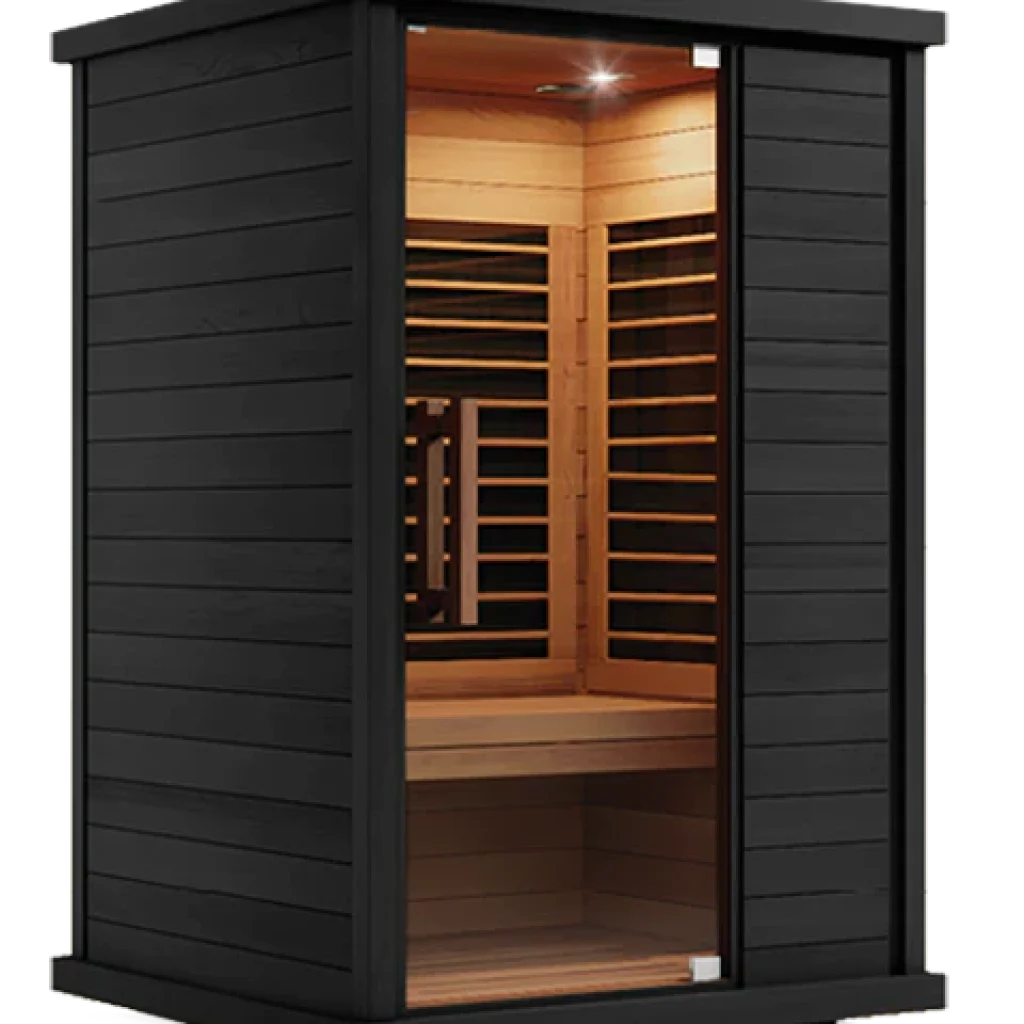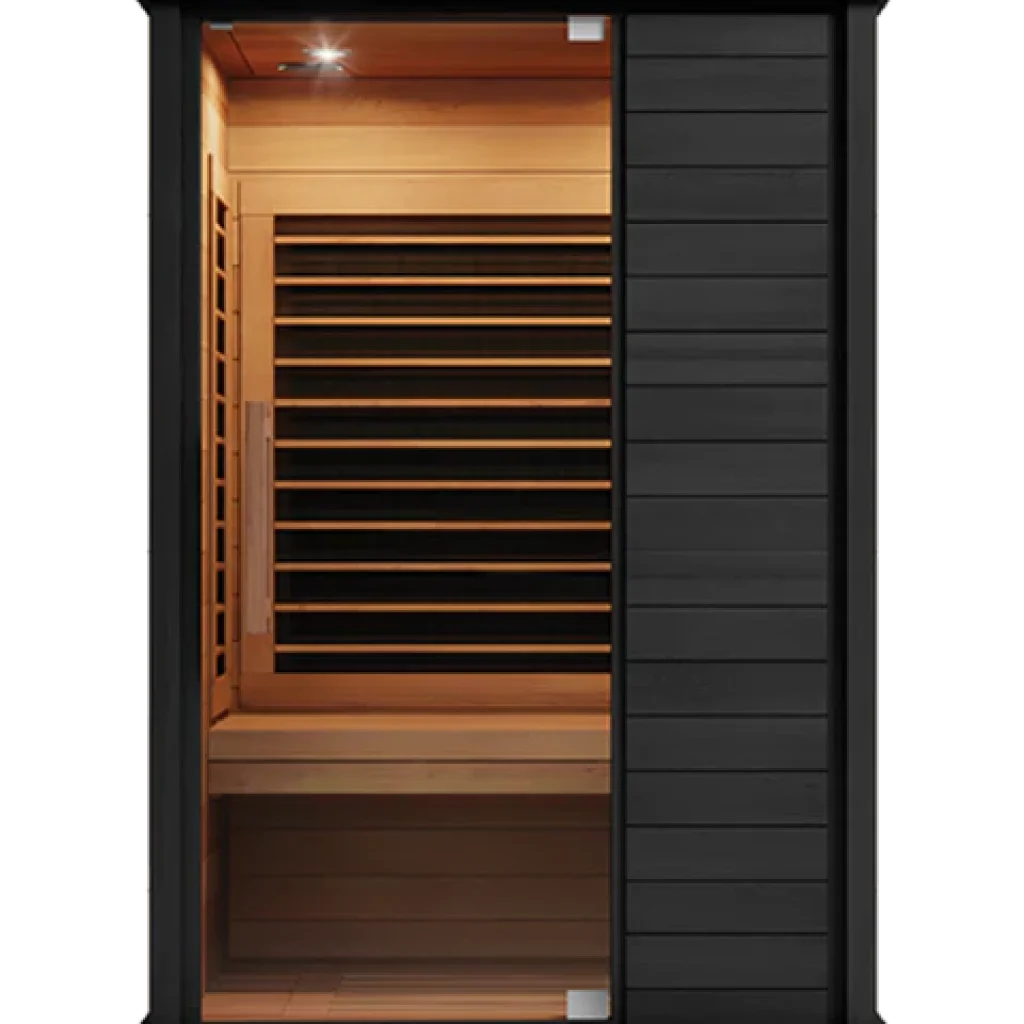
Are Home Saunas Worth It?
Home saunas have become increasingly popular as people seek ways to enhance their wellness routines and create relaxation spaces within their homes. But the question remains: are home saunas worth the investment?
Cons of Owning a Sauna
Owning a sauna comes with several potential downsides that need careful consideration:
- Initial Investment and Installation Costs: Setting up a home sauna can be expensive. The cost varies depending on the type and size of the sauna, with prices ranging from $2,000 to $10,000 or more. Additionally, there may be extra costs for installation and any necessary home modifications. Learn more about the cost of installing a sauna.
- Maintenance and Operational Costs: Maintaining a sauna requires regular cleaning and occasional repairs, adding to the ongoing expenses. Traditional saunas, in particular, consume more electricity, leading to higher utility bills.
- Space Requirements: A sauna requires a dedicated space within your home, which might not be feasible for everyone. Outdoor saunas need additional considerations such as weatherproofing and proper insulation.
Health Benefits

Despite the costs, home saunas offer numerous health benefits that can make them a worthwhile investment:
- Detoxification and Improved Circulation: Regular sauna sessions help the body detoxify by sweating out toxins and improving blood circulation. Read more about detoxification methods.
- Potential Weight Loss and Muscle Recovery: Saunas can aid in weight loss by increasing heart rate and metabolic rate. They are also beneficial for muscle recovery after intense physical activities.
- Mental Relaxation: The heat and isolation of a sauna provide a calming environment, helping to reduce stress and promote mental well-being. Explore our guide to stress reduction.
Practical Considerations
When deciding whether a home sauna is worth it, consider the following practical aspects:
- Space and Installation: Evaluate if you have adequate space for a sauna and if your home can accommodate the installation requirements.
- Impact on Home Value: A well-installed sauna can potentially increase your home’s value, appealing to future buyers interested in wellness features. Discover more about home wellness trends.
Key Takeaway Table
- Pros: Health benefits, relaxation, potential home value increase.
- Cons: High initial cost, space requirements, maintenance.
What Type of Sauna is Best for Home?
Choosing the right type of sauna for your home can be challenging, given the various options available. Here’s a breakdown of the most popular types and their unique benefits.
Infrared vs. Traditional Saunas

Infrared and traditional saunas are the two main types commonly considered for home use.
- Infrared Saunas: These saunas use infrared heaters to emit radiant heat, which is absorbed directly by the body. Infrared saunas operate at lower temperatures than traditional saunas, making them more comfortable for longer sessions. They are also more energy-efficient. Learn more about the benefits of infrared saunas.
- Traditional Saunas: These saunas heat the air to a high temperature, which in turn heats your body. This type is known for providing a more intense and authentic sauna experience. However, they consume more electricity and can be less comfortable for extended use. Read about the traditional sauna experience.
Wet vs. Dry Saunas
Understanding the difference between wet and dry saunas can help you decide which is better suited to your needs.
- Wet Saunas: Often referred to as steam rooms, these saunas generate steam by pouring water over heated rocks. The steam creates a humid environment that can help open up the respiratory system. However, wet saunas require more maintenance to prevent mold and mildew.
- Dry Saunas: These saunas do not use water and maintain a dry heat environment. They are easier to maintain and are less likely to develop issues related to moisture.
Installation and Ventilation Needs
Proper installation and ventilation are crucial for ensuring the safety and efficiency of your home sauna.
- Indoor Saunas: Installing a sauna indoors requires adequate ventilation to manage the heat and moisture. Ensure that the installation area can support the sauna’s weight and size. Learn more about indoor sauna installation.
- Outdoor Saunas: Outdoor saunas provide flexibility in terms of space and can be easier to install. However, they need to be weatherproofed and insulated to withstand the elements. Discover tips for outdoor sauna installation.
Key Takeaway Table
- Infrared Saunas: Lower energy usage, deep tissue benefits.
- Traditional Saunas: Authentic experience, higher energy use.
- Wet Saunas: Steam benefits, more maintenance.
- Dry Saunas: Less maintenance, milder heat.
Do Home Saunas Use a Lot of Electricity?
One of the primary concerns for potential home sauna owners is the electricity consumption and the associated costs. Understanding how much electricity different types of saunas use can help you make an informed decision.
Electricity Usage by Type
The amount of electricity a sauna uses largely depends on its type and how frequently it is used.
- Infrared Saunas: These are generally more energy-efficient than traditional saunas. Infrared saunas typically use between 1.6 kW to 6 kW of power, depending on their size and model. This translates to lower electricity costs, making them an attractive option for regular use.
- Traditional Saunas: These saunas can consume significantly more electricity, ranging from 3 kW to 8 kW. The higher power usage is due to the need to heat the air to a higher temperature. Learn more about energy-efficient saunas.
Cost Implications
The operational costs of running a sauna depend on your local electricity rates and how often you use the sauna. Here are some rough estimates:
- Infrared Sauna Costs: On average, running an infrared sauna can cost between $0.10 to $0.75 per hour, depending on the power usage and electricity rates.
- Traditional Sauna Costs: Traditional saunas can cost between $0.25 to $1.50 per hour to run. Although they are more expensive to operate, many users feel the authentic experience is worth the extra cost.
Energy Efficiency Tips
To minimize electricity usage and reduce costs, consider the following tips:
- Proper Insulation: Ensure your sauna is well-insulated to maintain heat and reduce the amount of energy needed to reach and sustain the desired temperature.
- Regular Maintenance: Keep your sauna in good condition to ensure it operates efficiently. Clean the heaters and replace any worn-out components promptly.
- Usage Habits: Limit the time you spend in the sauna and turn it off when not in use to save energy. Scheduling regular but shorter sessions can help manage electricity costs.
Additional Considerations
There are other factors to consider regarding the electricity usage of home saunas:
- Does a Sauna Need Special Plumbing? Most saunas do not require special plumbing, but if you choose a wet sauna or steam room, you will need to consider water supply and drainage requirements. Explore our guide to sauna installation.
- Heating Time and Efficiency: Infrared saunas heat up faster than traditional saunas, reducing the time and electricity needed to reach the desired temperature.
Key Takeaway Table
- Infrared Saunas: Lower electricity usage, cost-effective.
- Traditional Saunas: Higher electricity usage, more authentic experience.
- Energy Efficiency Tips: Proper insulation, regular maintenance, efficient usage habits.
How Much Does It Cost to Put a Sauna in Your House?
Installing a home sauna can be a significant investment, but understanding the costs involved can help you budget accordingly and make an informed decision.
Initial Costs
The initial cost of putting a sauna in your house depends on the type, size, and any additional features you choose. Here’s a breakdown of the typical costs:
- Infrared Saunas: These are generally less expensive to purchase and install, with prices ranging from $1,500 to $5,000. They are also easier to install, often requiring only a standard electrical outlet.
- Traditional Saunas: These can be more costly, with prices ranging from $3,000 to $10,000 or more, depending on the size and materials used. Installation can be more complex, requiring proper ventilation and sometimes plumbing.
- Additional Installation Costs: Depending on your home’s setup, you may need to factor in additional costs for electrical work, ventilation, and structural modifications. Explore our guide to sauna installation costs.
Maintenance and Operational Costs
Maintaining and operating a sauna also incurs ongoing costs. Here’s what you need to consider:
- Regular Upkeep: Saunas require regular cleaning to maintain hygiene and ensure efficient operation. Traditional saunas may also need periodic maintenance of the heating elements and ventilation system.
- Energy Costs: As previously discussed, the energy costs vary depending on the type of sauna. Infrared saunas are more energy-efficient, while traditional saunas can be more expensive to run. Learn about sauna maintenance tips.
Value Addition
Investing in a home sauna can potentially add value to your property. Here’s how:
- Increased Home Value: A well-installed sauna can make your home more appealing to potential buyers, especially those interested in wellness features. It can be a unique selling point that sets your property apart.
- Personal Benefits: The health and relaxation benefits you gain from a home sauna can also be considered a return on investment. Regular sauna use can contribute to improved well-being and quality of life.
Key Takeaway Table
- Initial Costs: Infrared saunas: $1,500 – $5,000; Traditional saunas: $3,000 – $10,000+.
- Maintenance Costs: Regular cleaning, potential repairs.
- Operational Costs: Electricity and water usage, varies by type.
- Value Addition: Potential increase in home value, personal health benefits.
Conclusion
Installing a home sauna can be a worthwhile investment if you consider the costs and benefits carefully. The type of sauna, installation requirements, and ongoing maintenance will all impact the overall cost and value you gain.

Home saunas offer a multitude of benefits, from improved health and relaxation to potential increases in home value. However, the decision to install a home sauna involves careful consideration of the type, costs, maintenance, and energy usage. By understanding these factors, you can make an informed choice that best suits your needs and lifestyle.
Recap of Key Points:
- Initial Investment: Costs can vary widely based on the type of sauna and additional installation requirements. Infrared saunas are generally more affordable and easier to install, while traditional saunas offer a more authentic experience but at a higher cost.
- Health Benefits: Both infrared and traditional saunas offer significant health benefits, including detoxification, improved circulation, and mental relaxation. Choosing the right type depends on your personal preferences and health goals.
- Energy and Maintenance Costs: Infrared saunas are more energy-efficient and have lower operational costs, while traditional saunas may require more maintenance and higher energy consumption.
- Value Addition: A well-installed sauna can enhance the appeal and value of your home, offering long-term benefits beyond initial costs.
Key Takeaway Table
- Initial Costs: Infrared saunas: $1,500 – $5,000; Traditional saunas: $3,000 – $10,000+.
- Maintenance Costs: Regular cleaning, potential repairs.
- Operational Costs: Electricity and water usage, varies by type.
- Value Addition: Potential increase in home value, personal health benefits.
By weighing the pros and cons and considering your specific circumstances, you can determine if a home sauna is a worthwhile addition to your home. Whether you choose an infrared or traditional sauna, the key is to ensure it meets your wellness needs and fits within your budget.
Leave a Reply